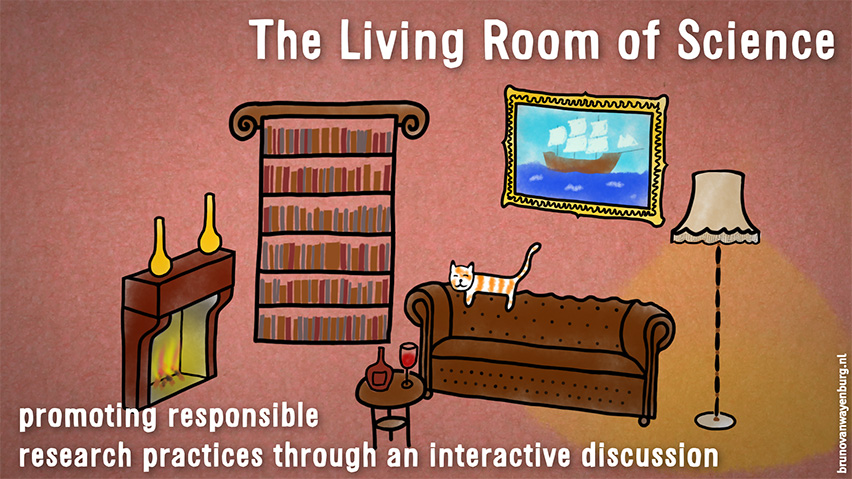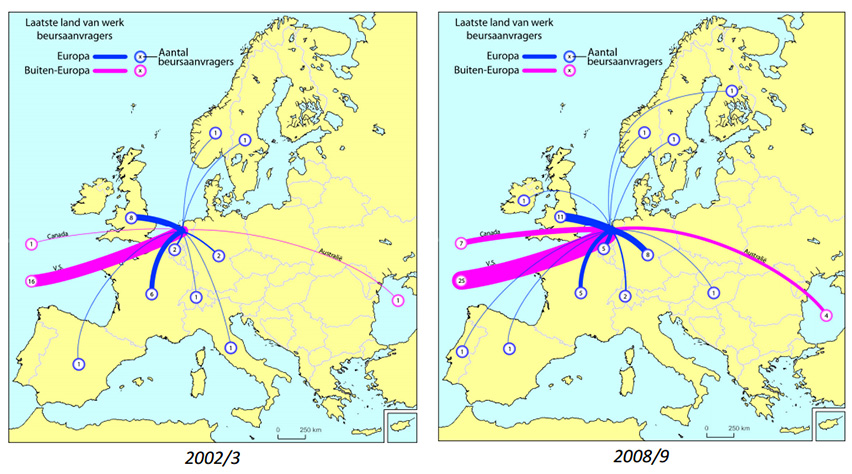LofS videos
In the fall of 2018, De Jonge Akademie will launch an interactive platform titled ‘The Living Room of Science’ (LofS) for generating, gathering and sharing knowledge on responsible research practices across all research disciplines. This platform will help young scholars and scientists find their way…
Protected: Wat voor auteur ben jij?
There is no excerpt because this is a protected post.
Sneak Preview
During the ECDP conference the animation “My adventures among the scientists – By Sir prof.dr. Jeffrey Mosquite, esq, PhD.” will be showed in the Living Room of Science. For a sneak preview see the video below. Tickets for non-conference participants cost only 25 euros! …
Improving Transparency and Replication in Bayesian Statistics: The WAMBS-Checklist
Bayesian statistical methods are slowly creeping into all fields of science and are becoming ever more popular in applied research. Although it is very attractive to use Bayesian statistics, our personal experience has led us to believe that naively applying Bayesian methods can be dangerous for at least 3 main reasons:
Kick-off for the project “The myth of null-hypothesis significance testing”
Today we have our first consortium meeting for the project “The myth of null-hypothesis significance testing in scientific research”, subsidized by ZonMW within the call about promoting responsible research practices (see below for more information about the project). The project group consists of Michiel de…
Wat zijn de regels van de wetenschap en liggen die voor altijd vast?
“Lang… lang geleden, in een dorp hier ver vandaan, stelden de eerste wetenschappers Vragen. Op een dag besloten zij dat Vragen stellen veel beter ging als ze zich terugtrokken uit het dorp en in een ivoren toren gingen werken. Daar konden zij in alle rust zoeken naar mogelijke antwoorden op de Vragen.
A Bildung-psychological investigation into student motives: McKinsey- or von Humboldt-oriented?
This study examined differential student motives among students from a social sciences bachelor’s degree, and whether this difference related to participating in educational programmes for broader intellectual formation (Bildung). Survey research was conducted among 432 Dutch students (79.5% female), ranging in age from 17 to 32 years (Mage = 21.12, SD = 2.08).
Possible Solution to Publication Bias Through Bayesian Statistics
The present paper argues that an important cause of publication bias resides in traditional frequentist statistics forcing binary decisions. An alternative approach through Bayesian statistics provides various degrees of support for any hypothesis allowing balanced decisions and proper null hypothesis testing, which may prevent publication bias.
From a PhD to What? The Importance of the education-employment transition: Lessons from the Netherlands
The number of PhD graduates is on the rise. With the exception of Poland, all of the OECD countries experienced an increase in PhD graduates in the past decade (OECD, 2013). The increase in PhD graduates attests to a growth in knowledge and innovation, a growth that can be advantageous for academia, government and industry alike.
What Took Them So Long? Explaining PhD Delays among Doctoral Candidates
A delay in PhD completion, while likely undesirable for PhD candidates, can also be detrimental to universities if and when PhD delay leads to attrition/termination. Termination of the PhD trajectory can lead to individual stress, a loss of valuable time and resources invested in the candidate and can also mean a loss of competitive advantage.
Mobiliteitsonderzoek Vernieuwingsimpuls-laureaten
In 2011 besloot NWO onderzoek te laten doen naar de wetenschappers die een subsidie ontvingen in het kader van de zogenoemde VernieuwingsImpuls (VI). Het gaat daarbij om drie typen subsidies die NWO als volgt omschrijft:













